Current members
-
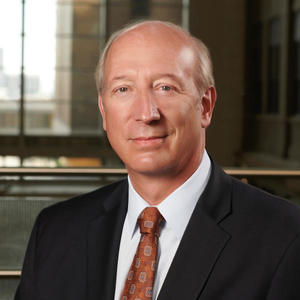
Prof. David Holtzman
Professor of Neurology, Washington
University School of Medicine in St. LouisDavid Holtzman received his BS and MD from Northwestern University and did Neurology residency and post-doc at UCSF. He moved to Washington University in 1994. He is Professor of Neurology, scientific director of the Hope Center for Neurological Disorders, and former chair of Neurology (2003-2021).
Previous honors include the Potamkin prize, MetLife award, election to the National Academy of Medicine, National Academy of Inventors and AAAS, being appointed to the National Advisory council of the NINDS and NIA, the Chancellor’s award for innovation and entrepreneurship, the Cori award from Washington University, and was past president of the American Neurological Association. -
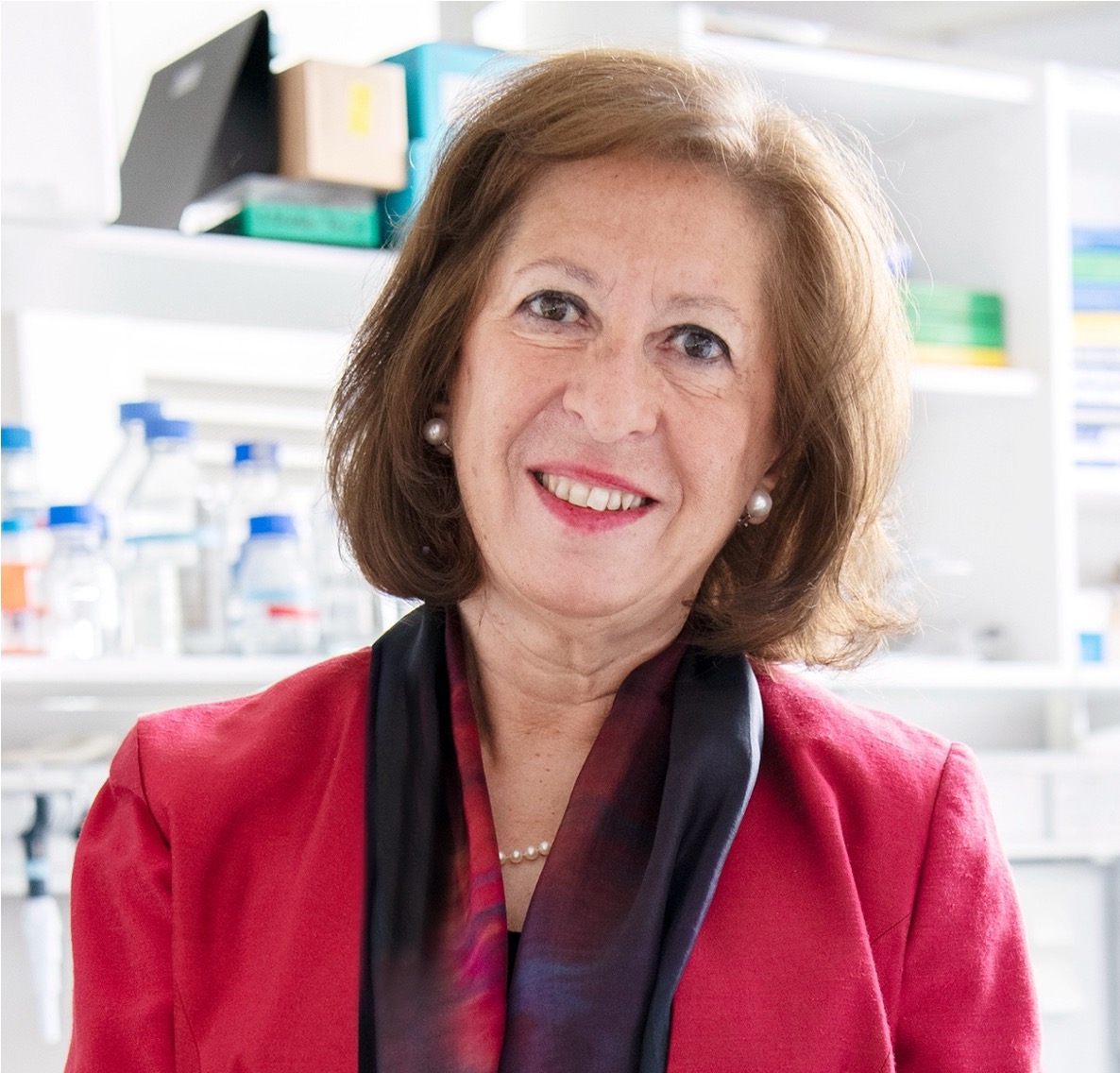
Prof. Maria Grazia Spillantini
Professor of Molecular Neurology, Clinical School of the University of Cambridge
Maria Grazia Spillantini is Professor of Molecular Neurology in the Clinical School of the University of Cambridge. After receiving a Laurea in Biological Sciences, summa cum Laude, in 1981 from the University of Florence, she pursued research at the Department of Clinical Pharmacology of the University of Florence, at the Unité de Neurobiologie of the INSERM in Paris and at the Molecular Neurobiology Unit of the Medical Research Council in Cambridge. In 1987, she moved to the Medical Research Council Laboratory of Molecular Biology where, working in Dr. Michel Goedert’s group she obtained a Ph.D. in molecular biology from Cambridge University and later worked as a postdoctoral fellow with Prof. Sir Aaron Klug. In 1996, she moved to the Cambridge Centre for Brain Repair and, in 2014 to the Clifford Allbutt Building, both in the Department of Clinical Neurosciences of the University of Cambridge. Her group works on the molecular neuropathology of diseases characterized by tau and alpha-synuclein aggregates. With her collaborators, she identified alpha-synuclein as the main component of the filaments that form the Lewy bodies in Parkinson’s disease and dementia with Lewy bodies and described one of the first mutations in the MAPT gene leading to frontotemporal dementia and Parkinsonism linked to chromosome 17. She has received several international prizes including the Potamkin Prize of the American Academy of Neurology, the Cotzias Prize of the Spanish Neurological Society, the Van Andel Prize for outstanding achievements in Parkinson’s disease, The Thudichum Medal and the Grand Prix Europeen de la recherche sur Alzheimer. She was elected Fellow of the Academy of Medical Sciences, London in 2010, Fellow of the Royal Society, London in 2013 and Ufficiale dell’ Ordine della Stella d’Italia by the president of Italy in 2018. She is Professorial Fellow at Clare Hall and a life member of Peterhouse, Cambridge.
-
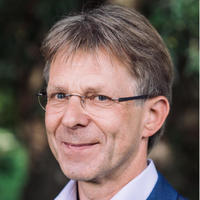
Prof. Hans-Christian Pape
Professor of Physiology, Westfaelische Wilhelms-University
Prof. Dr. Hans-Christian Pape has a scientific interest in the synaptic network mechanisms underlying sleep-wake states and emotional behavior, and their clinically relevant alterations. After studying biology at Bochum University, Germany, and obtaining a PhD, he did a postdoc with David McCormick at Yale University, USA. He chaired Physiology and a Collaborative Research Center (CRC) dedicated to limbic systems and functions at Magdeburg University, Germany.
Since 2004, he is a Professor and Chair of Physiology at Muenster University, where he coordinates a CRC on Fear, Anxiety, Anxiety Disorders. He served at the National Council for Science and Humanities (Wissenschaftsrat), the senate of the German Research Foundation (DFG), and is a member of the National Academy of Sciences (Leopoldina).
Since 2018, he is the President of the Alexander von Humboldt-Foundation. Among his scientific honors are the Gottfried-Wilhelm-Leibniz-Award of the DFG (1999), the Max-Planck-Research Award (2007), and the Best Teacher Award at Münster University (2006). He is co-editor of the textbook „Physiologie“, and has published more than 200 peer-reviewed original and review articles.
-
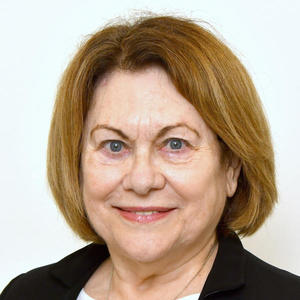
Prof. Hermona Soreq
Professor of Molecular Neuroscience, The Hebrew University of Jerusalem
Hermona Soreq was born in Tel Aviv and was attracted to biological research as a high school student at the Hebrew University’s Science For Youth Program. She then studied at The Hebrew University (BSc in Biochemistry and Microbiology, 1967), Tel Aviv University (MSc in Biochemistry, 1969), The Weizmann Institute (PhD in Biochemistry with the late Uriel Z Littauer, 1976) and the Rockeffeler University (Fogarty fellow in Molecular Cell Biology with James E Darnell, 1979-1980), and her research at that time was focused on molecular biology and proved that the 3’ poly(A) tail of mRNA stabilizes these molecules, a concept that she initiated with an EMBO course taught by John Gurdon, and which extended to her experimental work on the 3’-end of neuronal mRNA molecules until these days.
After several years at the Weizmann Institute’s then new Department of Neurobiology, Soreq was promoted to Associate Professor and moved to The Hebrew University where she developed a research program focused on the molecular aspects of acetylcholine signaling, initiated the Molecular Biology program at The Institute of Life Sciences and led a Research Center on neurodegenerative diseases (2000-2005), headed the Institute of Life Sciences (head, 2000-2005), and The Faculty of Science (Dean, 2005-2008), among other activities. Being intrigued by the yet incompletely understood roles of the 3’-end mRNAs in the human nervous system, Soreq shifted her interest to the microRNA and more recently to transfer RNA fragment regulators of neuronal gene expression in health and mental and neurodegenerative disease in men and women.
-

Prof. Lennart Mucke
Professor of Neuroscience, Unifersity of California, San Francisco
Lennart Mucke, M.D., is the founding director of the Gladstone Institute of Neurological Disease and holds joint appointments as the Joseph B. Martin Distinguished Professor of Neuroscience and Professor of Neurology at the University of California, San Francisco. His research focuses on major brain disorders, including dementia, epilepsy and autism. He has generated informative experimental models of these conditions and has used them to identify novel strategies to prevent cognitive decline and behavioral abnormalities.
For his contributions, Dr. Mucke has received the Potamkin Prize (American Academy of Neurology), MetLife Foundation Award for Medical Research, Khalid Iqbal Lifetime Achievement Award and Zenith Award (Alzheimer’s Association), American Pacesetter Award (ARCS Foundation), MERIT award (NIH), and Award for Excellence in Direct Teaching and Mentoring (Haile T. Debas Academy of Medical Educators). He is an elected member of the American Neurological Association, the Association of American Physicians, and the National Academy of Medicine.
Dr. Mucke has served on the National Advisory Council on Aging (NIH) and has chaired the Scientific Advisory Boards of the German Center for Neurodegenerative Diseases (DZNE) and the UK Dementia Research Institute at University College London. He trained at the Free University Berlin, the Georg-August University and Max Planck Institute for Biophysical Chemistry in Göttingen, the Cleveland Clinic, Massachusetts General Hospital, Harvard Medical School, and The Scripps Research Institute.
-
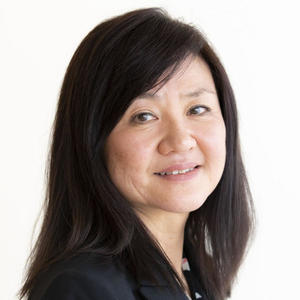
Prof. Li-Huei Tsai
Professor of Neuroscience, Picower Institute for Learning and Memory at MIT
Li-Huei Tsai is the Picower Professor of Neuroscience at MIT and the director of The Picower Institute for Learning and Memory. Her lab investigates disorders of memory and cognition, in particular neurodegenerative conditions such as Alzheimer’s disease, at scales ranging from the molecular and cellular to that of circuits and systems. Her work has highlighted important roles in neurodegeneration for the dysregulation of chromatin and genomic integrity as well as the kinase Cdk5.
Her lab also employs AI/machine learning methodology to analyze big data derived from human brains and animal models, and uses human induced pluripotent stem cells to model Alzheimer’s risk genes. Her study investigating dysfunction in neural circuits and networks has led to the discovery that sensory stimulation of 40 Hz gamma oscillation power and the associated synchrony, produce widespread ameliorative effects including a reduction in amyloid and tau pathology, prevention of neurodegeneration, and preservation of learning and memory. She demonstrated the enhanced gamma power recruits the brain’s immune cells and the vasculature.Tsai is a Fellow of the American Association for the Advancement of Science, a Fellow of the National Academy of Inventors, a Member of the National Academy of Medicine, a Member of the American Academy of Arts and Sciences, and an Academician of the Academia Sinica in Taiwan. She is a recipient of the Mika Salpeter Lifetime Achievement Award, the 2018 Hans Wigzell Research Foundation Science Prize for her research on Alzheimer’s disease, and The Institute of Biomedicine of Seville (IBiS) Distinguished Investigator Award in 2021.
-
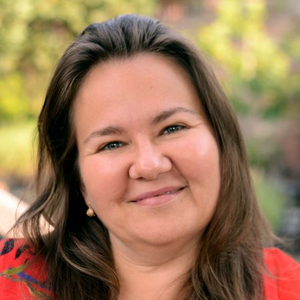
Prof. Nataša Pržulj
Professor of Biomedical Data Science, University College London
Prof. Dr. Nataša Pržulj has made outstanding contributions to the field of network science. She is the inventor of graphlets, a methodology now utilized in many algorithms. She initiated extraction of biomedical knowledge from the wiring patterns (topology) of complex and large molecular (omic) networks. Her recent work includes designing machine learning methods, mostly based on non-negative matrix tri-factorization, for fusion of heterogeneous biomedical data, applied to advancing biomedical knowledge and precision medicine.
She received more than €15.6 million in competitive research funding, including three of the most prestigious, single-PI, European Research Council (ERC) grants: €1.6M ERC Starting, €2M ERC Consolidator and an ERC Proof of Concept. Her publications have been cited over 11,300 times, she has an h-index of 47 and an i10-index of 73 (Google Scholar). She supervised 9 PhD students to completion and is currently supervising 9 more.
She has been elected to several academies, including Academia Europaea – The Academy of Europe, ELLIS – The European Laboratory for Learning and Intelligent Systems, Fellow of The British Computer Society Academy of Computing, and The Serbian Royal Academy. She is on editorial and scientific advisory boards. She is a Founder and Director of startup, Graphlet Technologies.
-
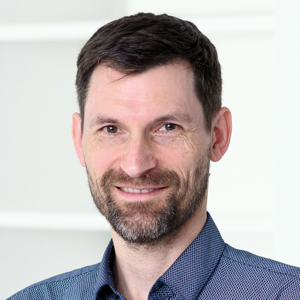
Prof. Andreas Beyer
Professor for Systems Biology, University of Cologne
Prof. Dr. Andreas Beyer obtained his PhD in Systems Science from the University of Osnabrück, Germany in 2002. From 2002-2006 he was a postdoctoral researcher at the Leibniz Institute for Age Research in Jena and the University of California San Diego. In 2007, he moved to Dresden, Germany, where he was the Cellular Networks & Systems Biology group leader at the BIOTEC, TU-Dresden. In 2013 he was appointed Professor for Systems Biology at the University of Cologne.
Previous members
-
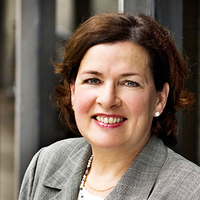
Prof. Bartha Maria Knoppers
-

Prof. Olaf Wolkenhauer
-
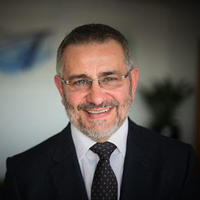
Dr. Adriano Henney
-
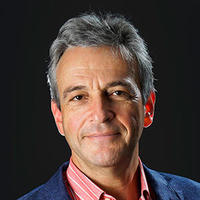
Prof. Ron Appel
-

Prof Katrina Bramstedt
-
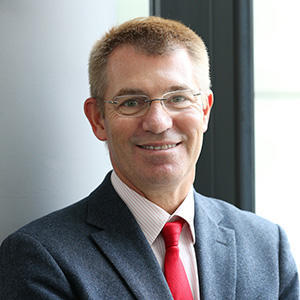
Prof. Etienne Hirsch